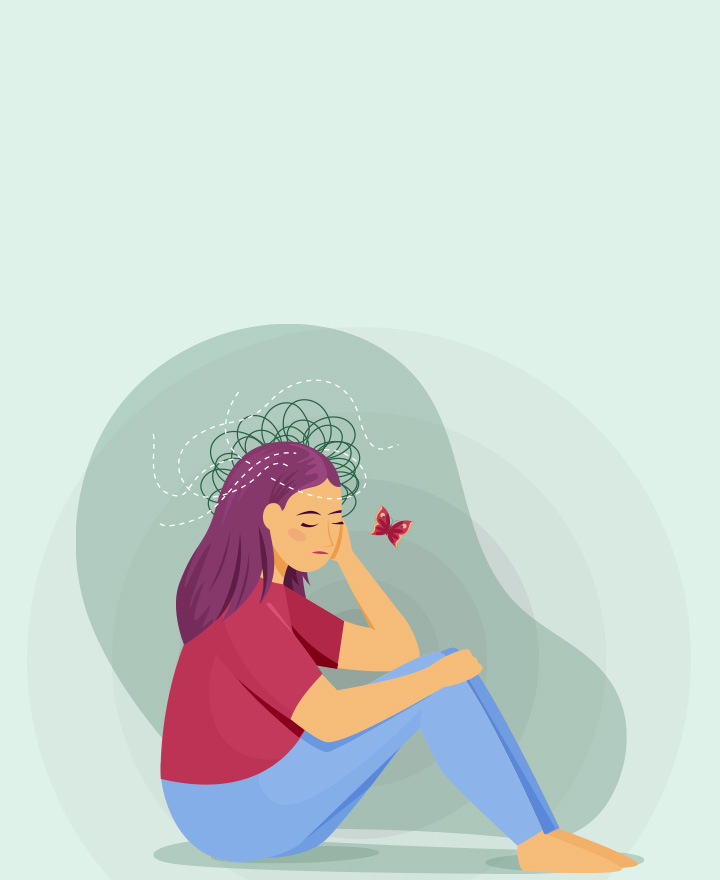

ADHD in Children & Adults: An Overview
Attention deficit hyperactivity disorder (ADHD) is a brain disorder that affects how you pay attention, sit still, and control your behavior. It happens in children and teens, and can continue into adulthood. ADHD is the most commonly diagnosed mental disorder in children, usually spotted during the early school years and boys are more likely to have it than girls.
Signs of ADHD in Children
ADHD primarily cause symptoms related to inattention, hyperactivity-impulsivity, or a combination of both. In children or toddlers with ADHD, this can lead to symptoms such as:
1. Trouble focusing on activities and becoming easily distracted
2. Attention span is low while playing or doing schoolwork
3. Excessive talking and interrupting other people
4. Feels the constant need to move
5. Fidgety and squirming
As children with ADHD get older, the symptoms they experience may change. In adolescents and teenagers with ADHD, other symptoms that may appear can include:
1. Frequently making mistakes while doing work
2. Frequently avoiding mentally taxing tasks
3. Trouble with task organization and time management
4. Experiencing increased frustration and emotional sensitivity
5. Trouble navigating social and familial relationships
Signs of ADHD in Adults
In adults, the symptoms of ADHD can appear different than those in adolescence or childhood due to the different responsibilities someone may have in adulthood. They may experience:
1. Difficulty at college or work place
2. Issues of low self-esteem and overall mental well-being
3. Frequent accident or injuries
4. Relationship problems with partner, family or co-workers
5. Substance misuse issue such as excessive drinking
Causes of ADHD
While the exact cause is unknown, it’s thought that genetics play a role in the development of ADHD. The other factors that are also believed to cause ADHD include:
1. Alcohol or tobacco consumption during pregnancy
2. Exposure to toxins like lead either during pregnancy or at a young age
3. Premature birth or low birth weight
4. Brain injury
Treatment Options
ADHD can make it difficult to function at your best in your home life, at work or school, or even within your relationships. Hence the correct diagnosis and right treatment is very important. Following treatment options can reduce ADHD symptoms and help an individual to function better in their daily life.
1. Therapy:
Behavioral therapy is one of the most beneficial type of therapy especially for children and adolescents.
• In younger children, behavioral therapies that focus on parent training, classroom management, and peer interventions are most effective.
• In adolescents and adults, a type of behavioral therapy called cognitive behavioral therapy (CBT) can also be helpful.
2. Medication:
Medicines can be used alone or in conjunction with behavioral therapy to reduce the symptoms of ADHD in both children and adults.
3. Lifestyle changes:
Certain lifestyle changes such as creating organization techniques and implementing time management strategies can help to work through the inattentiveness, hyperactivity, and impulsivity.
Conclusion
ADHD is a chronic neurodevelopmental condition that can cause a person to experience inattention, hyperactivity-impulsivity, or a mixture of both. While in children, ADHD symptoms can be overlooked or misunderstood by parents/ caretakers, untreated ADHD in adults can significantly interfere with daily functioning. With correct diagnosis and right treatment, ADHD symptoms can be managed and which can improve the overall quality of life.
One of the important components of our overall wellness is also being financially secured. Healthcare emergencies can happen any time, but a good health insurance policy can protect you from such uncertain situations. To know more about Wellness and other health related tips, visit the Wellness Corner.
Source: Webmd, Psychiatry, Healthy Children
Disclaimer: This blog provides general information and discussions about health and related subjects. The information and other content provided in this blog, website or in any linked materials are not intended and should not be considered, or used as a substitute for, medical advice, diagnosis or treatment. Kindly contact your Doctor before starting a new medicine or health regime.
Related Articles
Here Are 5 Immunity Boosting Home-Made Drinks That You Must Have
Cardio Vs. Weight Training: All You Should Know
Published on September 09, 2022

















 Car Insurance
Car Insurance  Bike/Two Wheeler Insurance
Bike/Two Wheeler Insurance  Health Insurance
Health Insurance  Pet Insurance
Pet Insurance  Travel Insurance
Travel Insurance  Home Insurance
Home Insurance  Cyber Insurance
Cyber Insurance  Third Party Vehicle Ins.
Third Party Vehicle Ins.  Tractor Insurance
Tractor Insurance  Goods Carrying Vehicle Ins.
Goods Carrying Vehicle Ins.  Passenger Carrying Vehicle Ins.
Passenger Carrying Vehicle Ins.  Compulsory Personal Accident Insurance
Compulsory Personal Accident Insurance  Travel Insurance
Travel Insurance  Rural
Rural  Critical illness Insurance
Critical illness Insurance